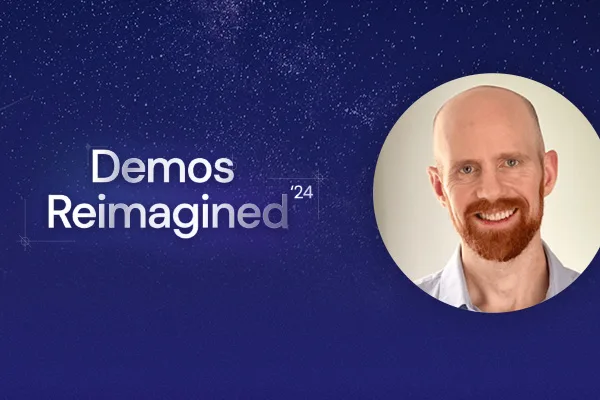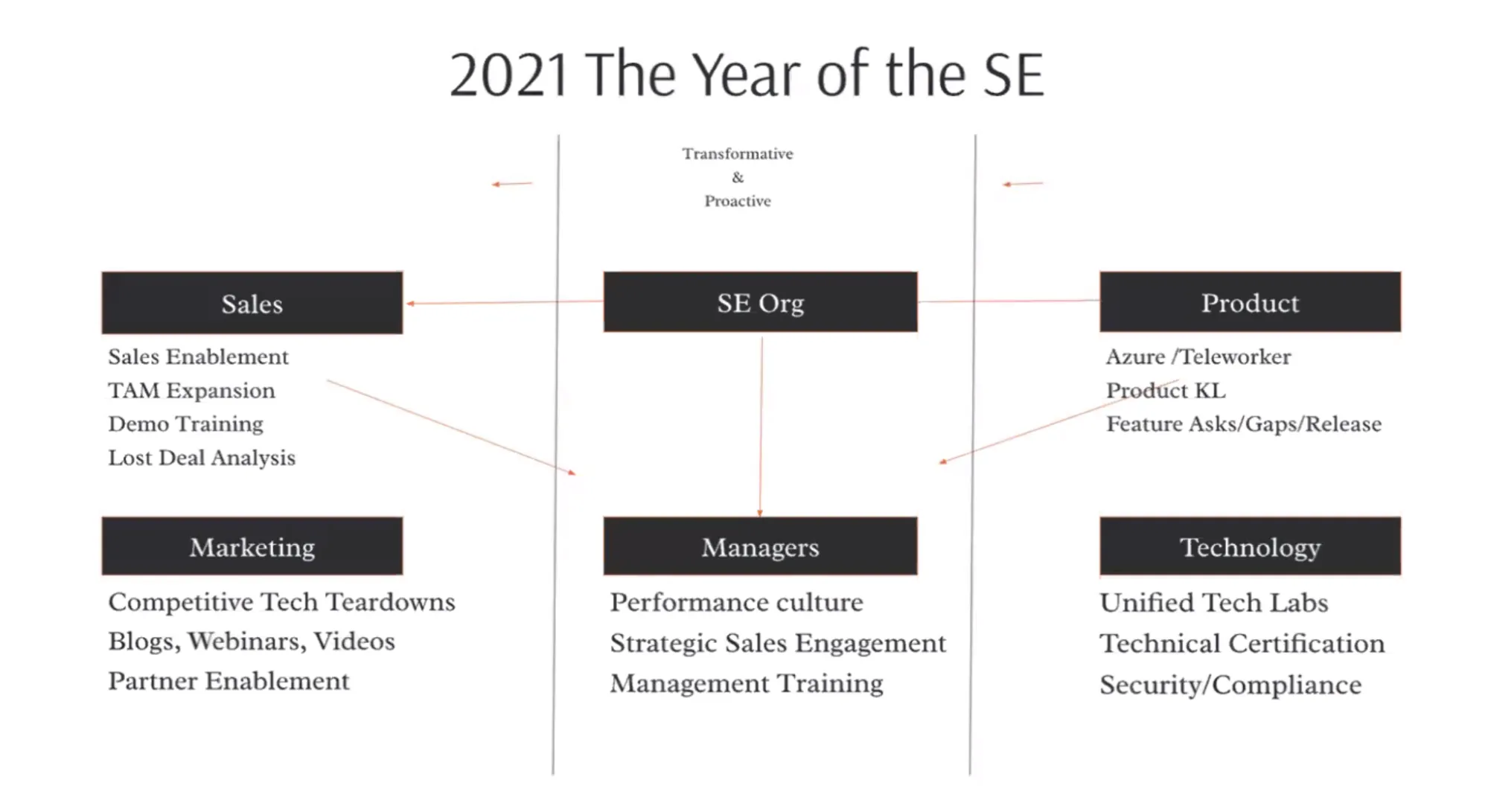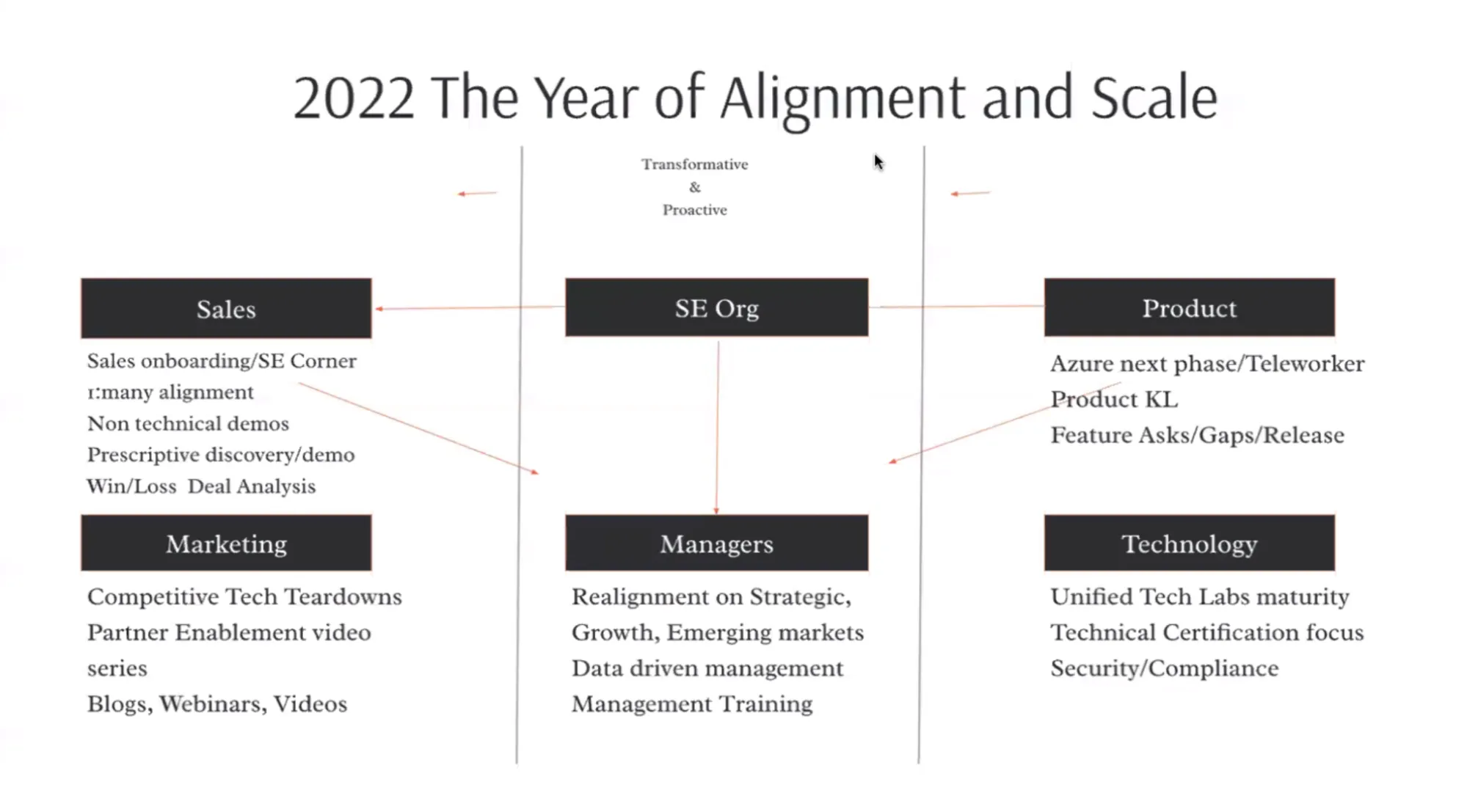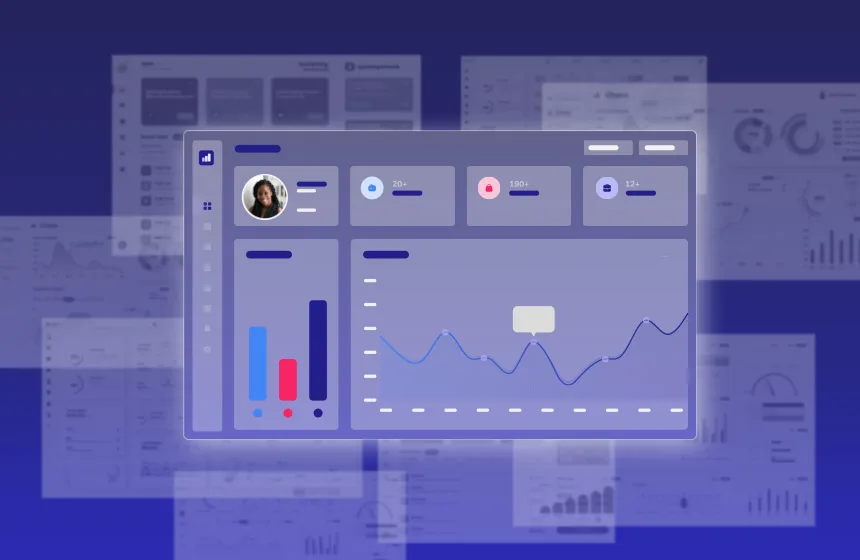Accelerate deals and increase win rates with the leading enterprise demo platform.
Use Maturity Models to Elevate Presales Impact

February 10, 2025
Table of Contents
Last week at “Demos Reimagined,” Chris Mabry, General Manager of PreSales Collective, led an important session for presales leaders focused on how to improve the function’s influence across the entire organization. Using a maturity model framework he developed in a previous role at Datto, he explored how presales teams can transform from basic support roles to essential players that shape company strategy.
It’s a career growth session you won’t want to miss. Even if you’re starting from the position of a limited resource, Mabry provided a plan for how to guide your team through the five maturity stages — elevating the presales function into the revenue leadership role it deserves. You can watch the full session video on-demand here, or read on for our recap below.
Defining Value for the Presales Role
Presales teams are one of the few functions in the organization that understand both sales and product deeply. This dual knowledge helps them influence every department within the organization, from sales and marketing to product development. However, proving this value can be challenging, as presales teams often lack visibility and recognition beyond their day-to-day roles.
To solve this, Mabry introduced the maturity model as a structured way to increase organizational influence. He emphasized that some teams may be more mature in some areas and less so in others — but everyone has an opportunity for advancement.
The Presales Maturity Model Stages
Mabry outlined five distinct maturity stages for pre-sales teams, each representing a level of growth and influence within the company:
1. Resource Stage
In this stage, teams function reactively, providing technical support (usually for sales) when needed. Their role is perceived as limited, often leading to minimal budget allocation and restricted impact on product development.
2. Collaborator Stage
Here, teams start collaborating proactively, engaging customers post-demo, and specializing roles. In this stage, presales is still seen as supportive rather than driving sales, but begins to influence product development.
3. Trusted Advisor Stage
As trusted advisors, teams are deeply integrated into the sales process, and are consistently tailoring demo content and other tasks to specific customer or prospect needs. Their influence extends across the sales lifecycle, from lead generation to customer handoffs, and they start building strong cross-functional relationships.
4. Go-to-Market and Product Influencer Stage
Here, teams have a significant impact on go-to-market (GTM) strategy and product development, frequently exceeding customer expectations and proactively driving sales growth. They are key players in internal strategy discussions and participate in forecast and sales meetings.
5. Revenue and Industry Leader Stage
The highest level of maturity begins when pre-sales is a strategic partner, shaping go-to-market (GTM) strategy and influencing product roadmaps. Teams are seen as key to the company’s business strategy and are integral to driving revenue growth.
Implementing the Maturity Model: A Two-Year Transformation Example
Mabry shared a two-year case study on transforming the Datto pre-sales team from a basic resource to a revenue-driving juggernaut. His strategy involved branding each year with specific goals, implementing councils to foster collaboration, and securing executive buy-in.
In the first year, dubbed “The Year of the SE,” the presales team focused on mapping out where to impact organizational influence. From there, Mabry recommended creating councils with key departments like sales enablement and marketing to enhance their cross-functional influence. For example, to influence marketing, the presales team created technical content, launching blogs and webinars that were the most popular content type for prospects and customers.
The team invested in efficiency-building demo technology to improve demo access and scalability, as well as created a standardized demo training. They also changed the way they measured presales success, tying the group’s actions to revenue generation as much as possible. They added a new Technical Account Manager (TAM) role to ensure the success of top customers and doubled their team headcount by tying their goals to revenue.
The second year, dubbed “The Year of Alignment and Scale,” aimed to scale initiatives developed in the previous year. This involved onboarding sales representatives, expanding customer engagement programs, and deepening partnerships with C-suite executives. For example, by leveraging SEs as subject matter experts, the presales team was able to create a sales enablement program for new reps. The presales team also established a weekly meeting with the CISO and CTO to educate the C-suite on the product, as well as joined QBRs to expand their influence even further.
Mabry emphasized that incremental progress and recognition are essential to sustaining these types of long-term transformation efforts. To make a program like this work, you have to be extremely clear with the vision of the framework you’re rolling out and why.
Key Takeaways for Presales Teams
While this session was packed with tips, here are some of the key takeaways for presales teams who want to expand their influence within the organization.
- Brand the Year: Giving each year a theme helps signal change and motivates the team.
- Create Councils: Establishing councils with other departments improves ongoing collaboration and influence. For instance, bi-weekly meetings with sales allowed Mabry’s team to refine and improve sales enablement strategies effectively.
- Tie Efforts to Revenue: Focusing on revenue-related outcomes — such as customer retention, reduced acquisition costs, and faster deal closures — helps justify budget requests and secure support from executives.
- Expand Influence Gradually: Mabry recommended a gradual approach to expanding influence, starting with creating councils, then extending to industry collaborations, and continuously building data-driven insights focused on revenue impact.
- Implement Customer Enablement Programs: As a way to build long-term customer relationships, Mabry’s team introduced a nurture program focused on helping customers extract ongoing value from the product, contributing to customer retention and expansion opportunities.
By advocating for a shift in presales influence, teams can extend their reach and improve cross-functional alignment without necessarily owning every process. This concept of “influential ownership” allows pre-sales teams to impact business outcomes without shouldering full operational responsibility. Mabry’s approach is backed with data, which drives decision-making that aligns with company goals. For pre-sales professionals looking to elevate their roles, Mabry’s framework offers a clear, step-by-step path.








